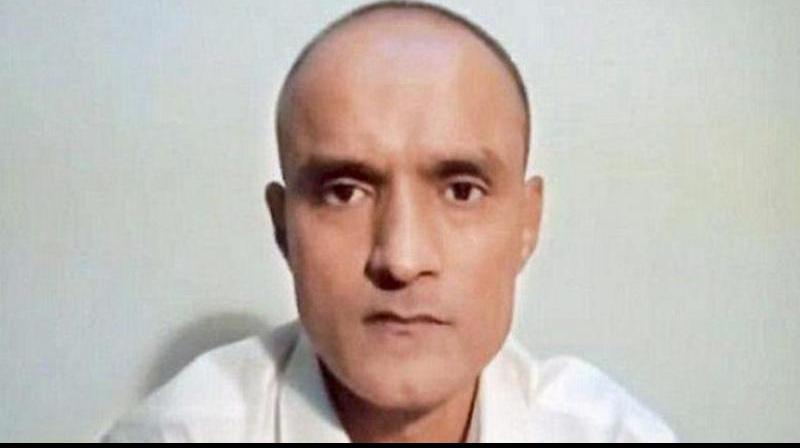ICJ asks Pakistan to reconsider death sentence to Kulbhushan Jadhav
ICJ has also granted India consular access to Kulbhushan Jadhav.

Mumbai: India scored an important victory over Pakistan in the world arena on Wednesday when the International Court of Justice said that the death sentence to Kulbhushan Jadhav must stay suspended until Pakistan effectively reviews and reconsiders the sentence in light of Pakistan’s breach of Article 36(1) of the Vienna Convention, that is the denial of consular access and notification to the Indian citizen.
"The Court recalls that it indicated a provisional measure directing Pakistan to take all measures at its disposal to ensure that Mr. Jadhav is not executed pending the final decision in the present proceedings (Jadhav (India v. Pakistan), Provisional Measures, Order of 18 May 2017, I.C.J. Reports 2017, p. 246, para. 61 (I)).
"The Court considers that a continued stay of execution constitutes an indispensable condition for the effective review and reconsideration of the conviction and sentence of Mr Jadhav," said Abdulqawi Ahmed Yusuf from Somalia, who read out the 42-page judgement on the petition filed by India in May 2017 against the Pakistan's military court sentencing of Jadhav.
The Kulbhushan Jadhav case involves an Indian man named Kulbhushan Jadhav, a former Naval officer, who was allegedly found on March 3, 2016, in Balochistan province of Pakistan spying for Indian intelligence agency, Research and Analysis Wing (RAW). India has denied all such allegations and has said that he was actually in Iran to look after his business interests where he was picked up by Pakistani officials and then tried and awarded a death penalty in a Pakistani military court without a counsel under the allegation of being a spy.
The 16-member Court unanimously found that it had jurisdiction to go into the case under the Vienna Convention to entertain the application filed by India on May 08, 2017. By 15 votes to one, it rejected the objections raised by Pakistan to the admissibility of India's petition.
The Court by 15 votes to one also held that by not informing Jadhav without delay of his rights under the Vienna Convention on consular relations, Pakistan breached the obligations incumbent upon it under the provision.
By a similar voting, the Court found by not notifying the appropriate consular post of India in Pakistan without delay of the detention of Jadhav and thereby depriving India of the right to render the assistance under the Vienna Convention to him Islamabad has breached the obligation incumbent upon it.
"The Court considers that the breaches by Pakistan set out in (i) and (iii) in the paragraph above constitute internationally wrongful acts of a continuing character. Accordingly, the Court is of the view that Pakistan is under an obligation to cease those acts and to comply fully with its obligations under Article 36 of the Vienna Convention. Consequently, Pakistan must inform Mr Jadhav without further delay of his rights under Article 36, paragraph 1 (b), and allow Indian consular officers to have access to him and to arrange for his legal representation, as provided by Article 36, paragraph 1 (a) and (c)," read the order.
However, the international court rejected India's submission that it declares the sentence handed down by Pakistan's military court is violative of international law and the provisions of the Vienna Convention.
"With regard to India's contention that it is entitled to restitutio in integrum and its request to annul the decision of the military court and to restrain Pakistan from giving effect to the sentence or conviction, and its further request to direct Pakistan to take steps to annul the decision of the military court, to release Mr. Jadhav and to facilitate his safe passage to India, the Court reiterates that it is not the conviction and sentence of Mr. Jadhav which are to be regarded as a violation of Article 36 of the Vienna Convention.
"The Court also recalls that "[i]t is not to be presumed . . . that partial or total annulment of conviction or sentence provides the necessary and sole remedy" in cases of violations of Article 36 of the Vienna Convention (ibid., p. 60, para. 123). Thus, the Court finds that these submissions made by India cannot be upheld," the Court added.
India had then knocked the doors of the International Court of Justice and said that Pakistan's actions were in contravention of the Vienna Convention, accusing Pakistan of 'egregious violations of the Vienna Convention on Consular Relations' in the matter.
According to international conventions, rulings made by the International Court of Justice, which is the principal judicial organ of the United Nations are binding yet has no enforceability. Which means that, pertaining to the Kulbhushan Jadhav case, today’s verdict will be the final and binding decision to be given by the ICJ but it is up to the involved parties, namely India and Pakistan to therefore decide whether to follow the verdict or not.
Should the involved parties choose to not follow the verdict would ultimately lead to an international loss of image, but no legal implications per se. In the current scenario, Pakistan may choose not to follow it and Kulbhushan may still have to face the death penalty sentenced by the Pakistani military court.
With inputs from ANI.

